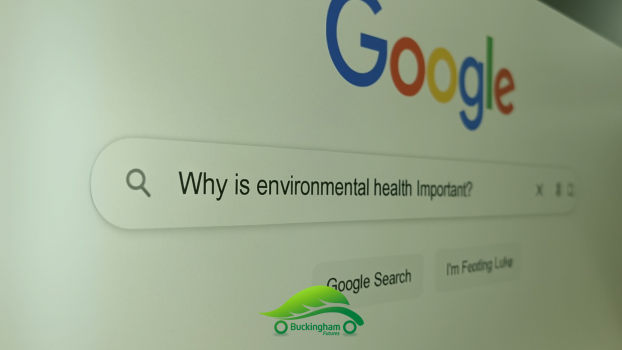
Why is Environmental Health Important?

Imagine stepping outside and being met not by the clear blue sky, but by a thick smog. The sun struggles to shine through the pollution in the air. The unpleasant smell of burning plastic, chemical runoff, and vehicle exhaust is inescapable.
Your favourite restaurants that once served fresh, local produce now struggle to find safe, clean ingredients. Many have closed, unable to meet even basic hygiene standards due to unreliable water supplies, pest infestations, and contamination risks. Food poisoning outbreaks are common, due to unsanitary kitchens and spoiled goods stored without proper refrigeration. Eating out is now a risk rather than a treat.
Supermarket shelves are half-stocked, with warning labels plastered on items, “may contain contaminants”, a result of non-existent safety regulations. The concept of food safety, once a given, now feels like a luxury.
Housing suffers too. Overcrowded and poorly maintained buildings contain mould, vermin, and structural hazards. Waste disposal systems are overrun. The air inside many homes is more toxic than the air outside, thanks to poor ventilation and industrial by-products seeping through walls. What should be a place of safety is now a source of illness.
This is why environmental health is so important.
Clean air, safe food, secure housing, and uncontaminated water aren’t luxuries, they are essentials. Environmental health is the silent back bone of public safety and quality of life.
Environmental Health Officers (EHOs) are the individuals tasked with maintaining that foundation. They inspect restaurants, investigate housing complaints, monitor waste management, and respond to public health threats. Their work often goes unnoticed, but without it, daily life would be dangerous, unpredictable, and in many cases, unliveable.
In our podcast series The Diary of an EHO, we speak to those working on the front line of environmental health. Their stories reveal just how personal and powerful this work can be.
Lamin Tamba, for example, shared a story on the importance of environmental health that started very early in his life, shaped by growing up in The Gambia, where lack of public health infrastructure had a devastating impact.
“I went to school with children who had polio as soon as they were born, or other disease-related disabilities… I made it a massive priority of mine to go back to my community and educate my peers, younger generations, and elderly people.
“I enrolled in the school of public health in 1997, and by the time I graduated in 2001 polio was almost becoming history in The Gambia. We eradicated yellow fever, mumps became history, measles became history. Three or four years later, polio was declared eradicated fully in The Gambia.”
Lamin’s story highlights what can happen when environmental health is prioritised. Life-threatening diseases can diminish, and communities can thrive.
The work of EHOs is essential, not optional. It’s what keeps food safe, homes liveable, communities resilient, and crises manageable. And yet, much of what they do remains invisible, until something goes wrong.
As the world faces increasing environmental challenges, from climate change to rapid urbanisation, their work is more vital than ever. Through education, regulation, and rapid response, Environmental Health Officers are not only preventing disaster, they are building a healthier, safer world for all of us.
So the next time you breathe in fresh air, drink clean water, or eat without the fear of getting ill. Remember, that didn’t happen by accident. It happened because someone cared enough to make environmental health their mission.
Want to hear more from the front lines of public health?
Tune into our podcast series The Diary of an EHO, available on YouTube and Spotify, to hear more inspiring stories in Environmental Health.
Follow us on Instagram, TikTok and Facebook @buckinghamblueprint for regular updates, behind-the-scenes content, and conversations that matter.
Thinking about a career in Environmental Health?
We’d love to hear from you! Contact the team at Buckingham Futures on 02081 254 321 or email us at info@buckinghamfutures.com.
Together, we can help build a cleaner, safer, and healthier environment for this generation and the next.

Share
Facebook
Twitter
LinkedIn
Telegram
Tumblr
WhatsApp
VK
Mail